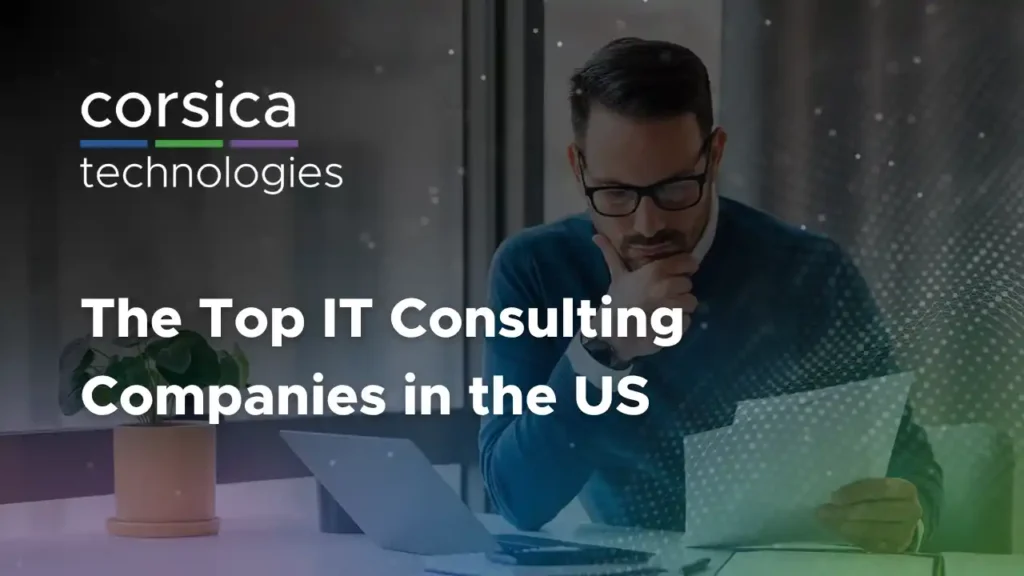Last updated August 25, 2025.
The age of AI is here.
It’s essential to define your AI business strategy and determine how you’ll stay ahead of this trend.
But how do you integrate AI into your systems—and your business processes? Are there any pitfalls you should avoid?
Here’s everything you need to know about AI integration services.
Key takeaways:
- AI integration offers powerful benefits, but you need to start with clean data and a clear business case.
- You need buy-in from the entire leadership team to integrate AI tools and processes into your operations.
- Expert consulting and integration services can help you get the most out of AI.
What are AI integration services?
AI integration services are services provided by a vendor to embed AI solutions within an organization’s operations. “Integration” refers to technical integration between different systems, but it also refers to altering and streamlining business processes by the introduction of right-fit AI tools.
In other words, AI integration services are a combination of technical services and business consulting. The goal is to create efficient, accurate, and secure processes by leveraging the power of AI technologies within an organization’s day-to-day operations.

Why integrate AI into your business?
The benefits of AI integration services are numerous. Here are the most common high-level goals for implementing AI.
Gain new insights
AI tools can help your team conduct research, solve problems, and uncover new insights. An AI-empowered team is ready to solve complex problems, elevating your organization’s decision-making and output. This is one of the biggest reasons to integrate AI into your operations.
Become more efficient
Some tasks will always require human insight. But many tasks are mundane, taking up too many work hours. AI integration allows you to right-size your team or reassign your experts to more complex tasks while AI handles the drudgery.
Create a better customer experience
AI chatbots are a gamechanger for customer service. Properly configured, a chatbot can provide quick solutions to common customer problems, elevating your customer service team to focus on more significant problems. The speed and relevance of AI answers create greater customer satisfaction, helping your organization rise above the rest.
Stay ahead of the competition
As AI adoption becomes more widespread, the leaders of the pack are reaping the benefits. AI integration services can help you transform your industry, placing you at the forefront of innovation and competition.
What are some common pitfalls of AI integration?
AI integration is a complex undertaking. Without an expert service provider, companies often make several mistakes. Here’s what you should watch out for.
Ignoring cybersecurity
When it comes to cybersecurity, not all AI tools are created equal.
If an AI software vendor doesn’t explicitly protect your organization’s data, it’s best to assume that any data entered in a prompt can leak out in response to another user’s prompt. This is because AI tools like ChatGPT are continuously trained on user inputs.
Here at Corsica Technologies, we recommend Microsoft Copilot for this reason. Microsoft protects your organization’s privacy and does not train Copilot on data from within your environment.
Learn more here (scroll down to #7): Microsoft Copilot vs. ChatGPT.
Not cleaning up your data first
A tool like Microsoft Copilot is built to integrate completely into your Microsoft 365 environment. It can respond to prompts with proprietary information from within your organization, like references to documents, meetings, transcripts of Teams calls, and more.
If your data is clean and organized, Copilot can do incredible things for you.
If your data is a mess, with some files stored locally and others in OneDrive or SharePoint, then things get trickier. Copilot is powerful, but it’s not powerful enough to overcome a poor data architecture.
This is why the first step in many AI implementations to put your house in order by ensuring data is well organized and security permissions are consistent with your specific organizations policies. The best integration services in the world can’t set you up for success if AI can’t read and interpret your data. Here at Corsica Technologies, we typically recommend an audit of your data landscape followed by a consolidation project as needed. This will lay the foundation for a great AI integration.
Not fixing user permissions
Do you have control of user permissions in Microsoft 365?
Does every user have the proper permissions?
Most organizations don’t know where they stand with permissions. If you implement AI without getting control of this, you may find that users can get sensitive information in AI responses because they have access to documents that they really shouldn’t be seeing.
The answer is to audit your permissions first, then make any required adjustments. This ensures that your AI integration doesn’t serve sensitive information to users.
Clinging to legacy processes
Some organizations want to force AI to fit their legacy processes. While this may be possible or advisable in some cases, it’s often not the right direction. The power of AI lies in outside-the-box thinking and new ways of operating.
You don’t want to leave value on the table when integrating AI. The best approach is to allow your service provider to consult on best practices that they’ve seen with other clients. This ensures that you leverage the full power of AI for efficiency and better operations.
Not taking a whole-organization approach
From finance to marketing, operations to sales, AI offers incredible benefits for the entire organization.
But how do you get the entire organization on board?
How do you ensure that every department is using AI in unique and tailored ways?
The answer is to take a whole-organization approach to AI. You need buy-in from leadership. Department heads need to work as a team to develop a cohesive AI strategy, then integrate it deeply across all functions within the organization. This is the best way to ensure consistency and get the most value out of your AI integration.

What should you look for in an AI integration provider?
When it comes to AI integration, not all service providers are created equal. Here’s what sets the top companies apart.
- Demonstrated experience in your industry. While many AI use cases are similar across industries, many opportunities are unique to specific verticals. AI use cases in healthcare and manufacturing will look very different. Your service provider should have deep experience integrating AI in the context of your industry.
- Expertise in cybersecurity. To avoid the potential cybersecurity risks of AI, you should look for a service provider who specializes in cybersecurity. Here at Corsica Technologies, we place cybersecurity at the foundation of everything we do. It’s integrated deeply into our approach to AI services and implementations.
- 100% predictable monthly pricing. If you’re going to engage your provider for any kind of managed services, it’s worth asking what their billing model looks like. Here at Corsica Technologies, we offer 100% predictable monthly pricing with unlimited service consumption. You can always depend on your monthly cost, even as your needs fluctuate—which makes it easy to stick to a budget.
- Data integration expertise. It sounds obvious, but if you’re going to integrate AI to other systems, your service provider should know their way around data integration. Unfortunately, many MSPs (managed service providers) and IT consultants don’t actually deal with this specialized technology. Here at Corsica, we offer data integration solutions and services alongside IT, cybersecurity, consulting, and digital transformation. In fact, we’re one of the few MSPs to specialize in data integration.
Moving forward: Getting help with AI integration
Integrating AI into your processes and systems doesn’t have to be hard. With the right partner, you can take advantage of all the benefits of AI, mitigate the risks, and get a solution that’s tailored to your industry and your processes. The Corsica team specializes in AI consulting and implementation, in addition to managed services for IT, cybersecurity, data integration, and digital transformation. Get in touch with us today, and let’s take your next step with technology.

Ready to leverage AI strategically?
Reach out to schedule a consultation with our AI integration specialists.













